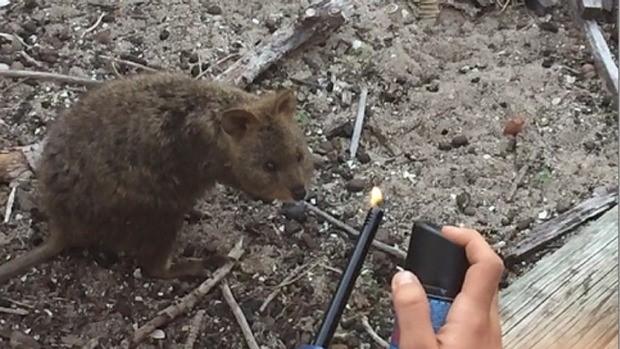Quokka selfies: Is Instagram's welfare warning 'overkill'?
- Published
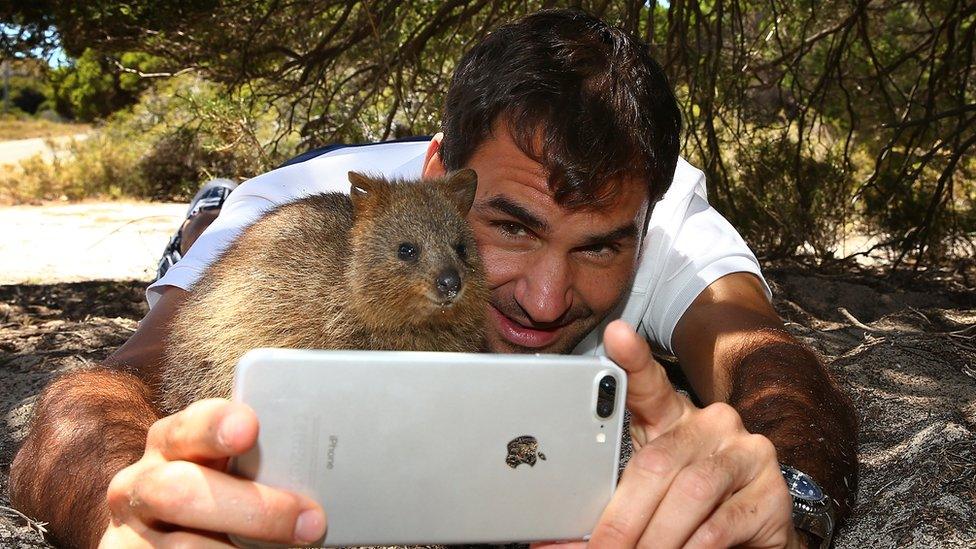
Tennis player Roger Federer visited Rottnest Island in December
The quokka is renowned as a popular photo subject for tourists in Western Australia. But a recent warning posted by Instagram on a popular hashtag has raised discussion about whether such photos could cause harm.
The cheerful-looking marsupial, chiefly found on Rottnest Island near Perth, regularly features in selfies with sightseers.
Famous examples include tennis player Roger Federer and actress Margot Robbie, both of whom have shared photos with their millions of followers.
Last month, the state's government even talked up "quokka selfies" as part of a renewed push for domestic and overseas tourists.
But now visitors to #quokkaselfie on Instagram - a hub for almost 22,000 pictures - are warned that some images "may be associated" with animal abuse.
Instagram has not explained its concerns about #quokkaselfie specifically, but in December it announced plans to post such warnings on certain hashtags "associated with harmful behaviour to animals or the environment".
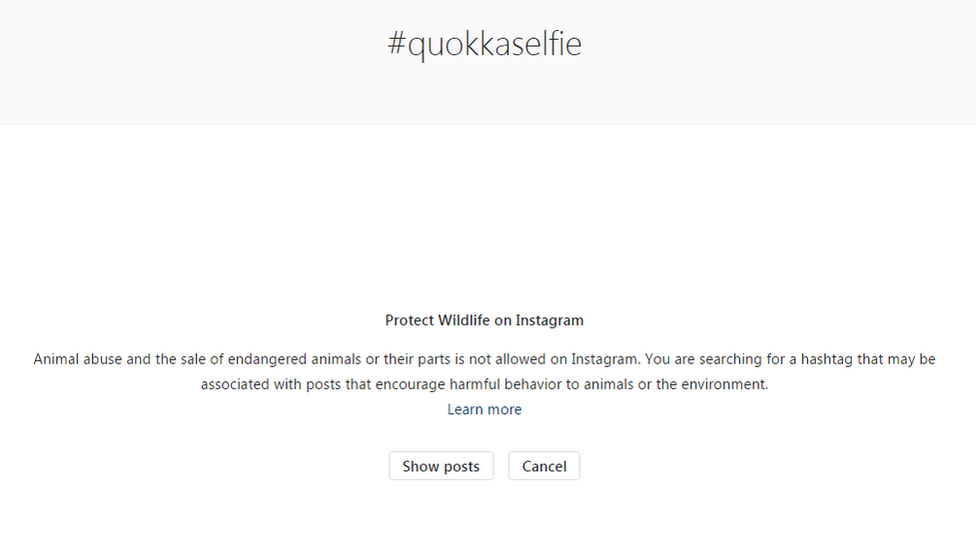
Instagram users who search for "#quokkaselfie" see this message
The move followed research by National Geographic magazine and the animal welfare organisation World Animal Protection about animal exploitation in the Amazon rainforest.
So should the warning be applied to quokka photos? The BBC asked local officials, animal experts and tourists for their views.
Protection 'taken seriously'
Quokkas have no predators on Rottnest Island, where signs warn people that touching and feeding the species is prohibited.
Offenders can face criminal charges and up to A$10,000 (£5,500, $7,500) in fines for interfering with wildlife.
In 2015, two French backpackers were fined for deliberately setting a quokka on fire. Other cruelty includes instances where the cat-sized animals have been kicked.
But there are no specific rules about taking photographs. Indeed, the Rottnest Island Authority has asked Instagram to remove its warning.
"The Instagram block notice is unhelpful in that it does not serve to educate or inform the public about our conservation efforts or direct people to how they might develop a better understanding of this native species," a spokesman told the BBC.
"The RIA takes seriously its responsibility to protect the quokka population on the island."
Allow Instagram content?
This article contains content provided by Instagram. We ask for your permission before anything is loaded, as they may be using cookies and other technologies. You may want to read Meta’s Instagram cookie policy, external and privacy policy, external before accepting. To view this content choose ‘accept and continue’.
State Tourism Minister Paul Papalia told the Australian Broadcasting Corporation last month:, external "You can't get a quokka selfie anywhere in the world other than in Western Australia and that means we can leverage off that to attract people."
What do experts say?
Wildlife researcher Dr Catherine Herbert said feeding quokkas certainly caused harm, but it remained unclear whether taking selfies with them was also detrimental.
"Sometimes, animals can be quite approachable and behaviourally may not look like they're affected, but we don't necessarily know what their underlying stress response is," said Dr Herbert, from the University of Sydney,
It was up to visitors to act responsibly, according to experts.
"If a quokka is comfortable, not showing any signs of distress and approaching the person, then taking a photograph is probably fine," said mammal expert Dr Christine Cooper, from Curtin University.
"What we don't want to see is people harassing them and chasing them for a picture."
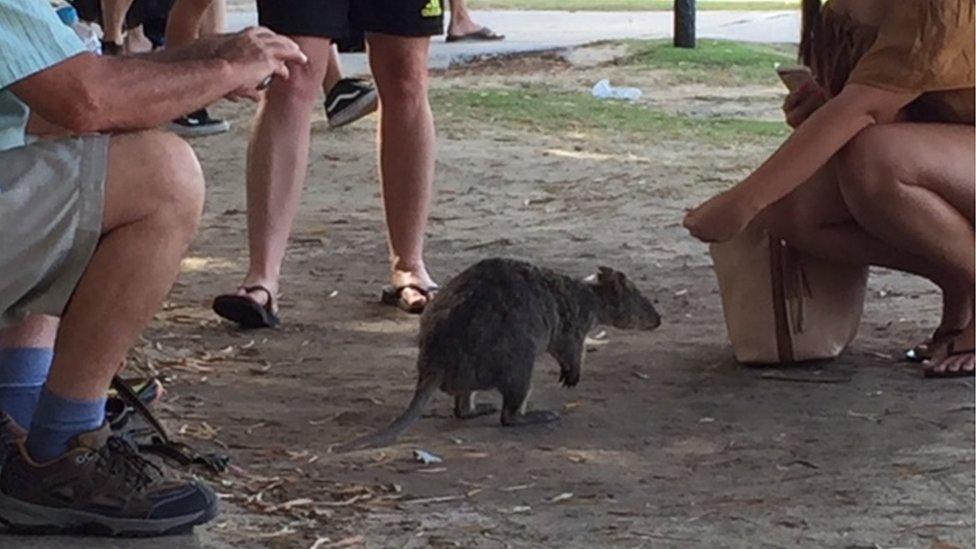
It is common to see tourists on Rottnest Island get up close to the animal
Dr Cooper described promoting them for tourism as "a bit of a doubled-edged sword".
"There can be a really positive spin-off in terms of raising awareness and allowing people to see them up close," she said. "But if you promote these things, you also have to ensure they are managed in the right way."
What do tourists think?
The BBC saw some tourists feeding quokkas on Rottnest Island, but others heeded warnings not to touch the animals or leave food.
One visitor from Perth, Sharna, said she thought the selfie warning was "overkill".
"There are worse things on the internet than that [quokka selfies]. And there are worse things happening to quokkas than that," she said, referring to abuse such as kicking.
A tourist from Adelaide, Sam, said she had not seen anyone bothering the animals.
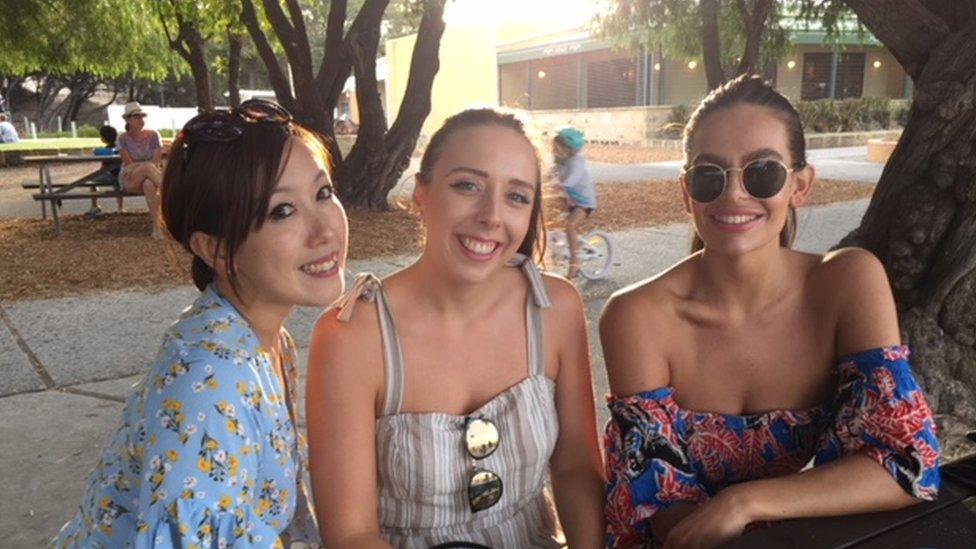
These tourists from Adelaide said visitors appeared to be respectful
"If any quokka walks away [from someone taking a selfie], they let them go," she said.
"I know I'm not out to harm or chase them."
Instagram did not respond to a request for comment.
Reporting by the BBC's Frances Mao and Anna Jones
- Published3 October 2017
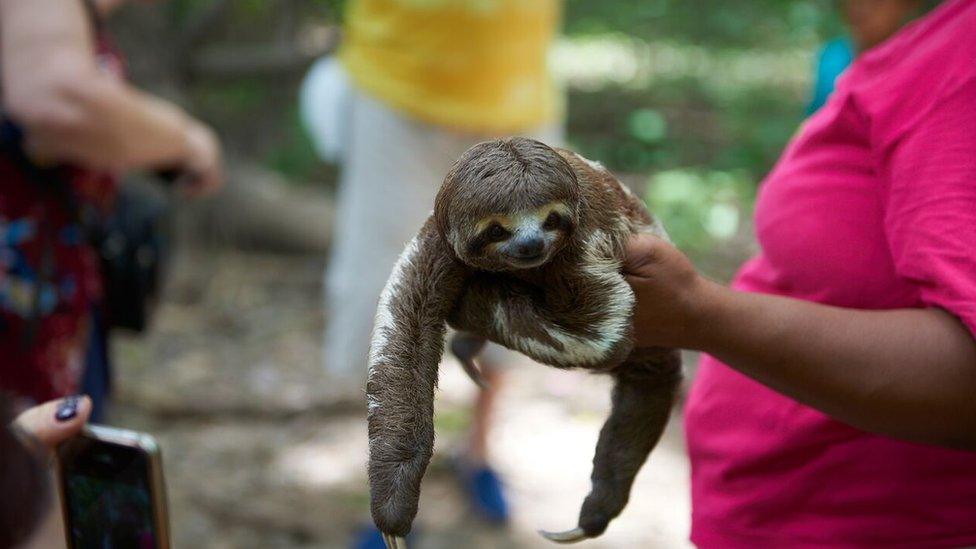
- Published3 March 2017
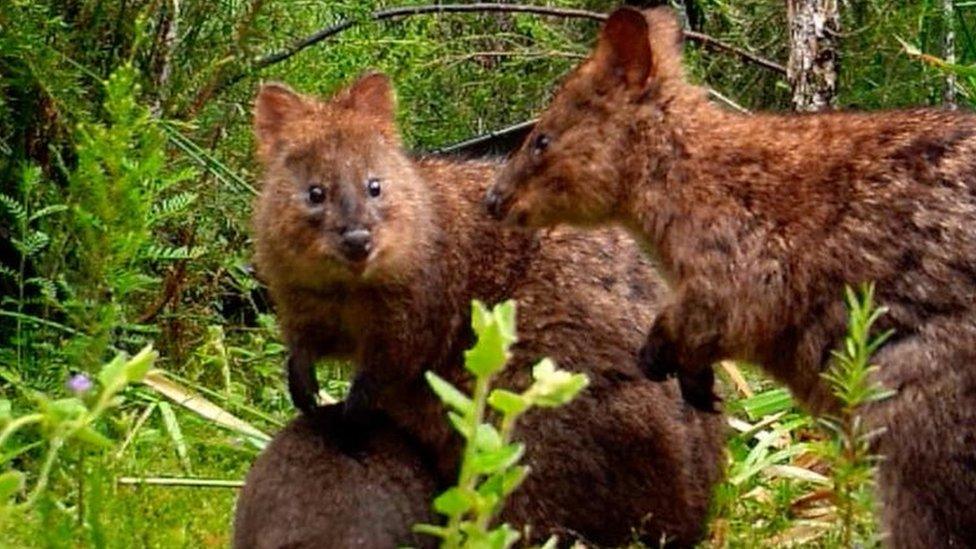
- Published17 April 2015
